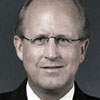What People Want
President Obama has to maneuver his way through a lot of constituencies, including Democratic senators and congress members, his own staff, and special-interest groups. Underneath it all, he may actually be a fiscal reformer. If he enacts major fiscal reforms, he will have one indispensable constituency on his side: public opinion. Ask the American people, and they will tell you overwhelmingly that our sustained fiscal health is fundamentally important.
In fact, we at the Peterson Foundation did ask them. The foundation commissioned a rigorous national poll by Hart Research Associates and Public Opinion Strategies in late March 2009. We wanted to see whether the recent hard times had made people more likely to accept reforms. And the answer was yes.
Above all, Americans told us that they want to get the economy back on track. But their second priority for the Obama administration was somewhat surprising. They wanted the president and the Congress to address our escalating deficits and debt levels. A cynic might suggest that it’s easy to endorse fiscal responsibility – as long as the money to pay for it doesn’t come out of your own pocket. Bill Clinton succeeded with the help of a strong economy; in the 1990s, we didn’t feel that the government was picking our pockets. In the 2010s, our weak economy could work for Obama: We have seen what irresponsible spending can lead to, and it’s scary. With the right leadership, Americans may be ready to accept tough choices to secure a better future.
You can’t get a better consensus for reform than we found. In summary, 73 percent of Republicans rated our growing budget deficits and national debt as a very big threat, along with 72 percent of independents and 58 percent of Democrats. About 90 percent wanted Washington to take action to address these issues. Somewhat surprisingly, the respondents rated this issue as being more important than health care reform and middle- class tax cuts. Americans also saw escalating deficits and debt as a danger more serious than global warming and our declines in education and manufacturing. In our poll, public concern about our economic future even trumped fears of a rogue nation developing a nuclear weapon. That’s what I call concern!
Yes, public opinion can shift quickly as the wind changes. If terrorists attacked us again on our home soil, the poll numbers would change. But my point is that in the early phase of his term, Obama had powerful public backing for the “grand bargain” on taxing and spending that, in January 2009, he said he wanted to achieve during his presidency.
Public concern continued to increase in succeeding months. In fact, it was manifest not just in more recent public opinion polls, but in public anger during many town hall meetings during Congress’s August 2009 recess. It’s true that some of the assertions and actions by protesters in town hall meetings regarding the pending health care reform proposals were inaccurate, inappropriate, and irresponsible. However, people had a right to be concerned about out-of-control spending and about plans to further expand the federal government. I fully expect that public concern will increase more now that the August 2009 long-term deficit projections have been released and Washington pushes for even more health care entitlements.
We’ve heard other presidents make strong statements regarding fiscal responsibility. Even President Bush 43 pledged to be fiscally responsible. Boy, was he telling a whopper! Let’s be fair to President Obama. It’s still early in his first term. However, as of this writing, there is no plan to put a process in place to achieve a “grand bargain” or to seriously reform federal spending programs and tax policies. Hopefully, one will be coming soon – possibly as part of his fiscal 2011 budget proposal, which is due in February 2010.*
Cracks are continuing to appear in our government’s financial foundation. In the fall of 2009, the Federal Deposit Insurance Corporation, which insures our bank deposits, revealed that it faced serious cash-flow challenges. So did the Transportation Department’s Highway Trust Fund. And the Social Security Administration disclosed that the retirement and survivors insurance program was expected to pay out more than it took in during 2010-11.
Regards,
David Walker
for The Daily Reckoning
*Since Mr. Walker penned the above words, President Obama delivered his Budget of the United States Government, Fiscal Year 2011. Does this look like a “grand bargain” to you?


Comments: